Original Research - Highlighted Projects
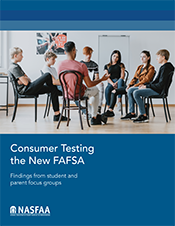 Consumer Testing the New FAFSA: Findings from student and parent focus groups
Consumer Testing the New FAFSA: Findings from student and parent focus groups
NASFAA retained ASA Research, LLC (ASA) to collect feedback on the 2024-25 Free Application for Federal Student Aid (FAFSA) process. As a result of this testing NASFAA offers six considerations in our full report for the Department of Education to take into account when developing future years' FAFSAs.
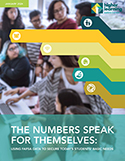 The Numbers Speak for Themselves: Using FAFSA Data to Secure Today’s Students’ Basic Needs
The Numbers Speak for Themselves: Using FAFSA Data to Secure Today’s Students’ Basic Needs
Higher Learning Advocates surveyed and interviewed NASFAA members in spring of 2022 to inform its brief on using FAFSA data to improve student access to federal means tested benefits.
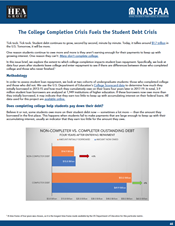 The College Completion Crisis Fuels the Student Debt Crisis
The College Completion Crisis Fuels the Student Debt Crisis
This issue brief, commissioned by NASFAA and authored by the HEA Group, explores the extent to which college completion impacts student loan repayment. Specifically, author Michael Itzkowitz looks at the U.S. Department of Education's College Scorecard data four years after students enter repayment to see if there are differences between those who completed college and those who did not.
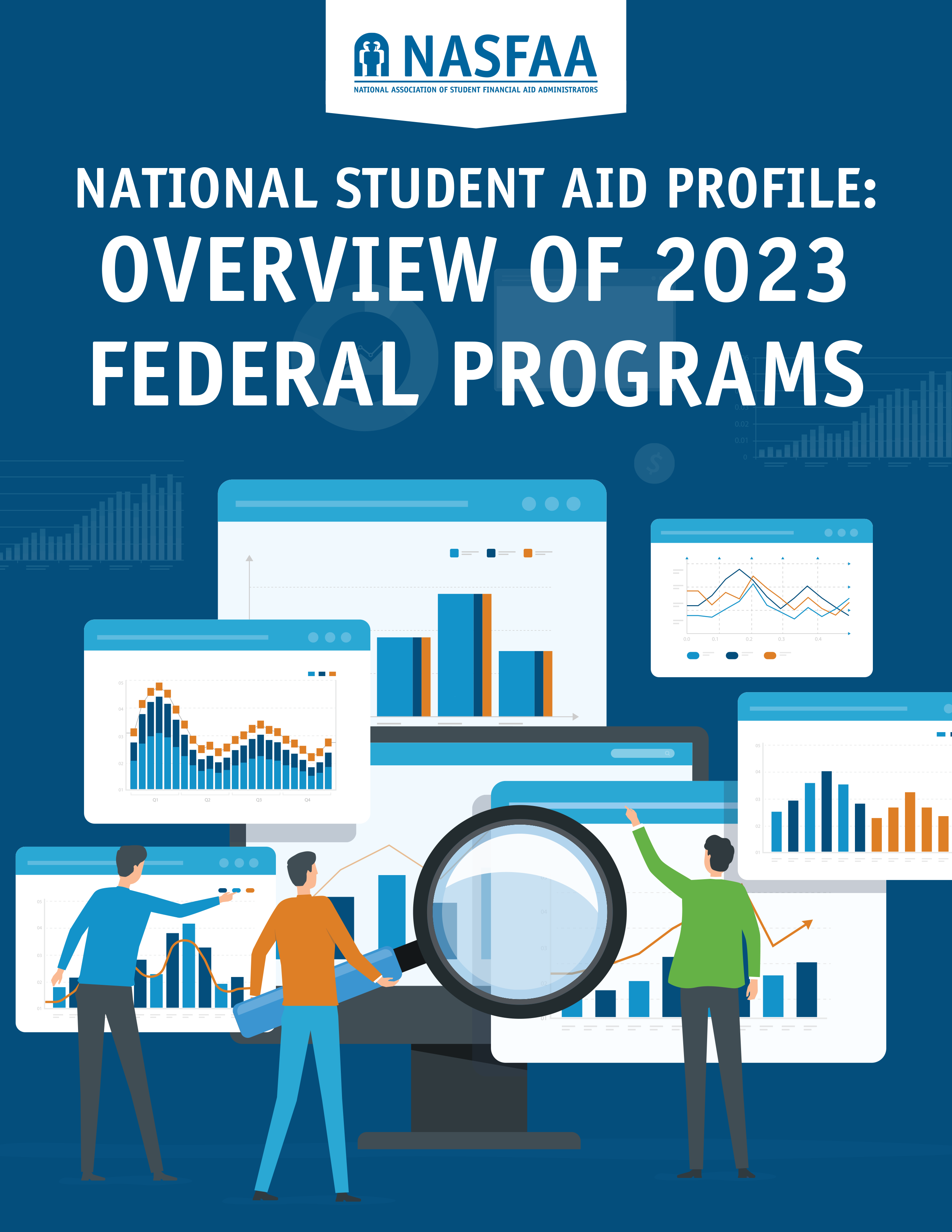 National Student Aid Profile
National Student Aid Profile
The National Student Aid Profile provides detailed information about the major programs authorized under Title IV of the Higher Education Act of 1965, including descriptions of the federal student aid programs; recent trends in federal program appropriations; income levels of students and families who receive aid; and a description of the federal student aid application process.
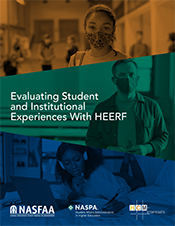 Evaluating Student and Institutional Experiences with HEERF
Evaluating Student and Institutional Experiences with HEERF
NASFAA, in collaboration with NASPA—Student Affairs Administrators in Higher Education and HCM Strategists, produced a report evaluating student and institutional experiences with the three rounds of Higher Education Emergency Relief Funding (HEERF). This research builds upon work conducted in 2021 on the CARES Act HEERF program, but it adds the student perspective and specifically examines differences among students and practitioners at Minority Serving Institutions (MSIs) relative to non-MSIs.
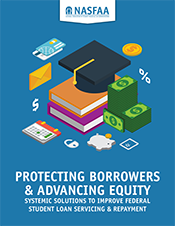 Protecting Borrowers & Advancing Equity
Protecting Borrowers & Advancing Equity
Through this grant funded work NASFAA has developed thoughtful, systemic, targeted policy solutions to treat the underlying flaws in the current student loan repayment and servicing systems that lead borrowers into financial hardship while underscoring the benefits of a strong federal loan program. Read the full report to learn more about the work NASFAA and coalition members, as noted in each individual section, put forth for recommendations on student loan servicing, student loan repayment, and student loan default.
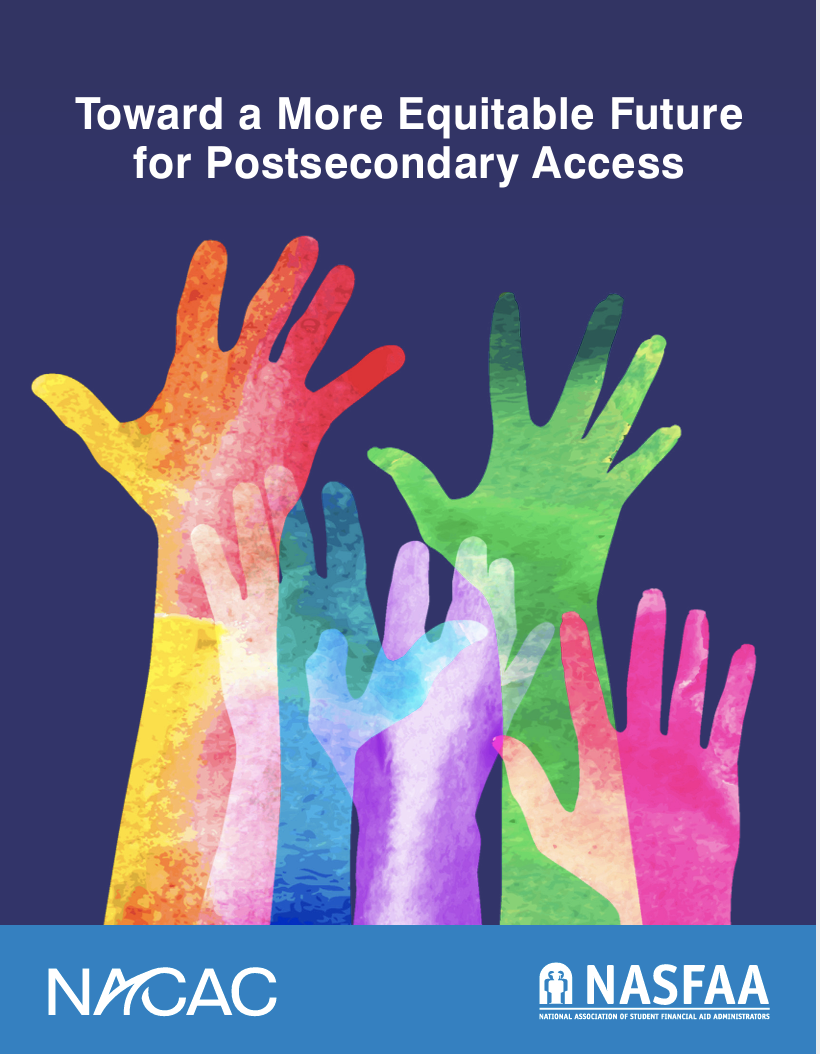 Toward a More Equitable Future for Postsecondary Access
Toward a More Equitable Future for Postsecondary Access
NASFAA and the National Association for College Admission Counseling (NACAC) joined together in this grant-funded project to attempt to understand and dismantle impediments to racial equity in the college admission and financial aid processes. The paper recommends a series of actions for admission and financial aid practitioners, educational institutions, and state and federal agencies and policymakers. It also urges further, deeper study and examination of issues that create barriers to entry to postsecondary education for traditional-aged and adult students of color, particularly Black students. Read the full report, along with key questions and recommendations the report raises.
For older NASFAA research highlights, place visit our Research Archive page.



